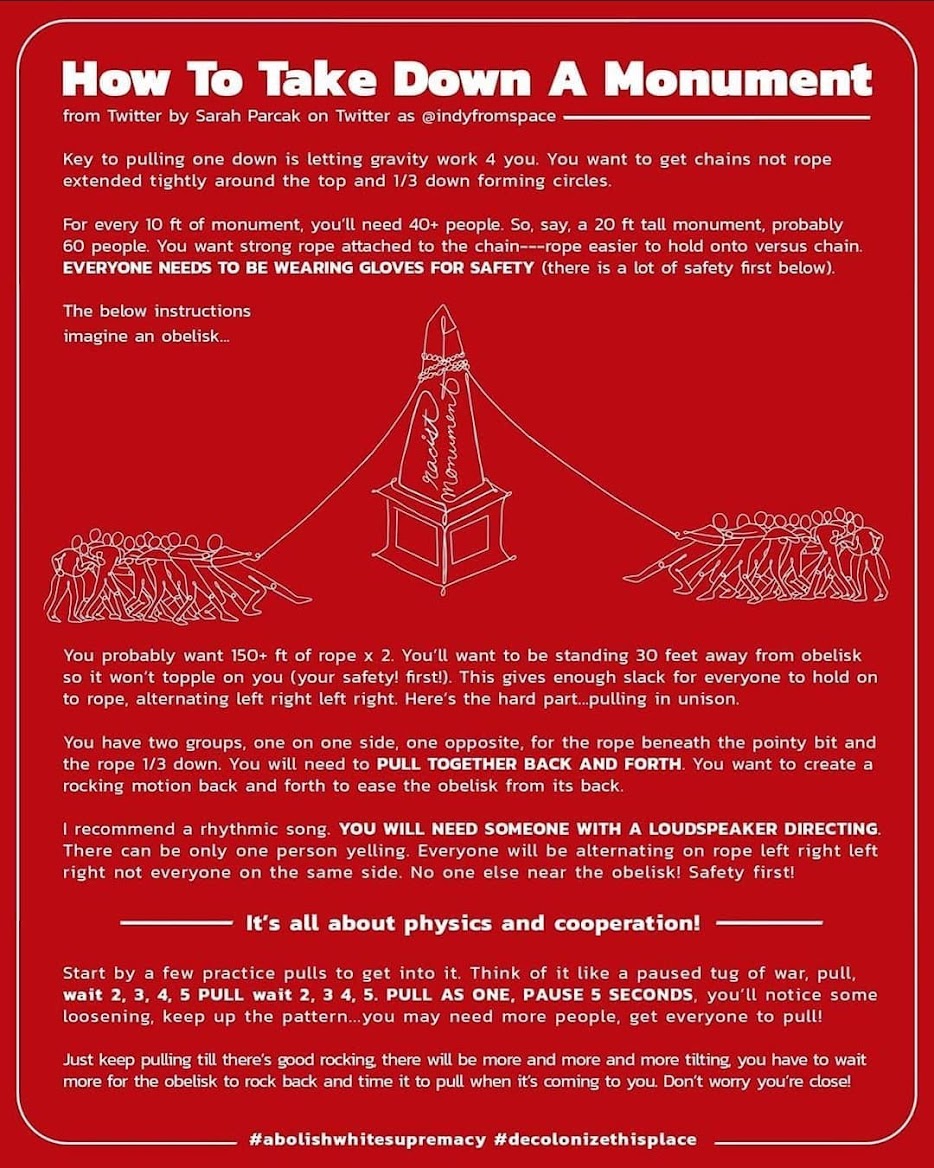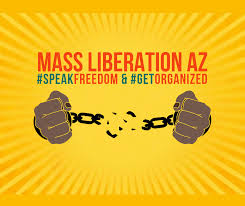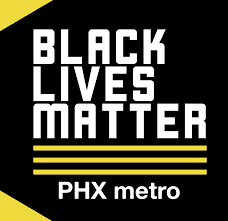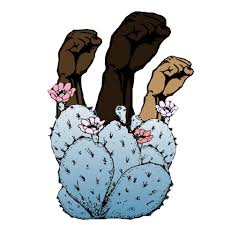Those of you who haven't been around PUENTE ARIZONA these past few years have missed a real evolution. I neglect to write about them precisely because they're doing such an incredible job confronting the criminalization of decent people and the brutality of detention and deportation. PUENTE and their allies in the migrant justice movement have deployed a diversity of tactics against the system: helping families fight the detention and deportation of loved ones; documenting human rights abuses; engaging in civil disobedience by locking down to deportation busses and prison gates; and waging simultaneous hunger strikes on both sides of the prison walls , for example. The movement to resist the prison industrial complex's death grip on immigrant families and communities in this region is so well organized that it just hasn't necessarily been a voice I thought needed my help in particular to amplify or echo - they speak well enough for themselves, that is.
Among other things, PUENTE has organized a youth media collective which has been documenting the struggles of migrant families torn apart by raids, detentions, and deportations. They produce incredible protest art through their collective, PUENTE INK. Their community room has a wall full of books banned from Arizona's public schools when Attorney General Tom Horne was State Superintendant, and convinced the legislature to put an end to classes and curriculum that he believed taught youth of color "to hate white people" - it's Arizona's Underground Library. There's so much happening at the place and in the community that is PUENTE - check them out yourselves. Swing by ICE on Central (just north of McDowell) where the hunger strikers are camping out - they'll tell you what it's all about.
I bring up PUENTE's work as I'm posting this article because it's been my observation that a number of undocumented LGBTQ young people are not just marginalized victims, as one may infer from below, but are respected leaders in the local migrant justice movement- many even risking detention and deportation in their efforts to liberate us all from this abusive system. Thus, the narrative of resistance to brutality in Arizona is also not one that can be written without them.
PUENTE human rights Activist Chela Chelinski
Mural by Amelec Diaz (Phoenix ICE Rally, 2012)
Left Out of the Narrative: LGBTQ Undocumented Detainees
Sunday, 16 February 2014 00:00 By Erika L. Sánchez,Truthout | News Analysis
Undocumented LGBTQ people are caught in a double bind of belonging neither in white mainstream LGBTQ narrative nor in the mainstream immigrant narrative. The consequences can range from difficult to deadly.
On Halloween of 2011, Eddy (who, for his personal safety prefers his last name not be disclosed), an undocumented immigrant from Chiapas, Mexico, living in Texas, was stopped by a police officer for passing a yellow light. Eddy, who has lived in the United States for most of his life, never imagined he would be in custody for 61 days because of a routine traffic stop.
Eddy says that he passed the sobriety test. But when he was asked for his license, he could not provide one because he was undocumented. When they reached the headquarters, he also demanded a blood test to further prove he was not driving under the influence.
After his arrest, Eddy says he was transferred to Harris County Jail, where he was held for 45 days. He was then taken to an immigration detention center in Houston. During the intake process, he says one of the questions was "Are you gay?" Because he answered yes, he says he was put in isolation for one week. The detention officials claimed it was for his own safety.
Other people were placed in solitary confinement because of aggressive acts or because they wanted to commit suicide. Eddy was placed there only because he was gay. "I think they put me there out of fear. That was unjustified," Eddy says. "It was the hardest moment of my life. I thought I was really going to go insane."
After his attorney contacted the warden, Eddy says that they removed him from isolation, and the warden warned him against having sex with anyone. According to Eddy, the warden said to him: "If you do get in trouble, we can't guarantee that we're going to protect you."
He remained in general population for three weeks until his blood tests came back and cleared him of driving under the influence. At that point, he was released on bail.
Eddy's experience, unfortunately, is not unusual. A 2013 report by American Progress found that many facilities place lesbian, gay, bisexual, trans and queer (LGBTQ) immigrants in administrative segregation, or solitary confinement, supposedly in response to concerns of sexual assault and harassment. LGBTQ immigrants held in immigration detention facilities are 15 times more likely to be sexually assaulted than their heterosexual counterparts.
According to the report, solitary confinement can lead to a variety of psychological problems, including hyper-sensitivity to external stimuli, hallucinations, panic attacks, obsessive thoughts and paranoia.
Clement Lee, an attorney at the Immigration Equality Center who provides representation for LGBTQ asylum seekers, says that in some extreme cases, trans women are placed in solitary confinement for months at a time.
"Many detention centers don't know how to house trans people. They almost always segregate them according to gender assignment given at birth," Lee says. "Many of our transgender women [housed in men’s prisons] face increased danger of sexual violence from both staff and detainees." Lee says that the detention centers address these problems by putting people in administrative isolation.
These hostile environments can lead to depression and other emotional issues. In 2011, Jonathan Perez, co-founder of Immigrant Youth Coalition, decided to be purposefully detained to highlight the injustice of the Secure Communities Program. While in a detention center in Louisiana, he says he witnessed some of the more "feminine" men being harassed by fellow detainees. Perez says this experience caused him to become depressed and stay in bed all day. "I didn't want to face it," he says. "Whether we realize it or not, we experience out oppression all the time. In general, I think it's scary because you don't know what you're going to face in these places. It's inhumane to be detained."
In addition to harassment and isolation, another obstacle many LGBTQ-identified detainees face is lack of access to HIV medication. The National Immigrant Justice Center has found that HIV-positive individuals detained by Immigration and Customs Enforcement (ICE) were harassed and mistreated and had a difficult time accessing HIV medication.
Lee says that sometimes people who have HIV hesitate to disclose it out of fear, which can lead to a lapse in medication. These lapses can be deadly. In 2007, Victoria Arellano, a Mexican HIV-positive transgender woman, died after being denied her medication and medical attention at the detention center in San Pedro, California.
Some trans detainees are also not allowed to receive hormone therapy while in custody, particularly when they don't have a previous prescription. Immigration Equality has found that medical staffs at detention facilities don't screen for or evaluate the need for transition-related care. According to the group's web site, "Due to the increased stressors that detainees live under, even if an individual did not take hormones or struggled with their GID [Gender Identity Disorder] before entering detention, their experience in detention may lead them to experience more intense feelings of gender discordance and necessitate treatment."
"Hormones are integral to expressing their gender identity, and that's something they should be able to receive," Lee says.
Rachel Ann Lewis, assistant professor in the Women and Gender Studies Program at George Mason University, says that when it comes to asylum petitions based on LGBTQ identity, there is a real emphasis on visible performance of sexuality, which can also be dangerous while in detention. Many have to make the difficult choice to "perform" their gender identity or sexuality for their petition for asylum and risk being harassed in detention.
Collecting evidence of their membership to particular group can be dangerous and difficult for some LGBTQ detainees, Lee adds. Many asylum-seekers, for instance, lack evidence because they've made efforts to conceal their sexuality out of fear of persecution in their home countries.
In addition to the danger faced in detention centers, Lewis points out that asylum seekers cannot work, which forces many to be homeless. As a result, Lee says, many have to resort to criminalized conduct, such as shoplifting and sex work, to survive.
Lulú Martinez, who immigrated from Mexico City at the age of 3, also infiltrated a detention center as an act of civil disobedience. She says that queer undocumented people there are caught in a double bind of belonging neither in white mainstream queer narrative nor in the mainstream immigrant narrative. When it comes to immigration reform, she believes legislators should be "acknowledging a broader language that allows for more inclusion."
While immigration reform hangs in the balance, the issue of detention abuse is just as relevant as ever and LGBTQ activists must continue to fight for visibility. According to The Center for American Progress, the Department of Homeland Security currently holds more than twice as many immigrants in detention each day as INS did during the entirety of 1998.
Marcela Espinoza, an undocumented lesbian woman who participated in Dream 30, fled her home in Michoacán and petitioned for asylum in October 2013. She was detained in El Paso. She is requesting asylum due to "credible fear" because of her sexuality and the violence she witnessed in her home state.
"Sometimes we don't have visibility in these spaces," she says. "There's always a heteronormative way of talking about immigration," she says. "We need that visibility. We need to be talking about these things. That's what we're trying to expose.









